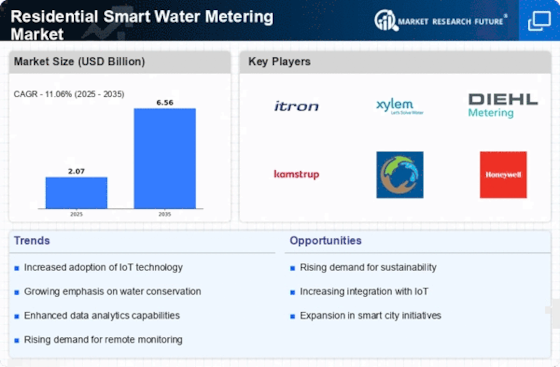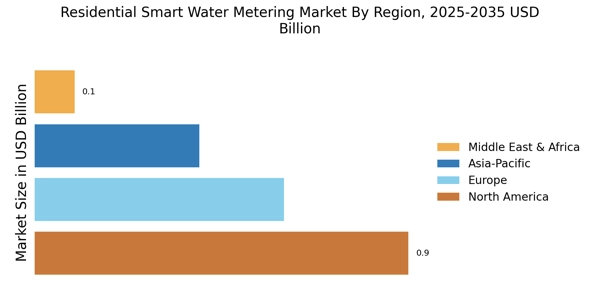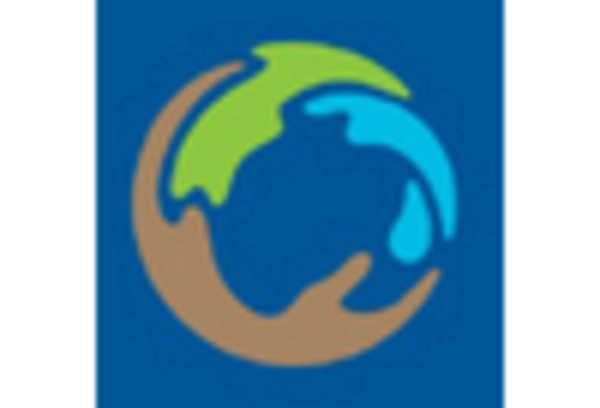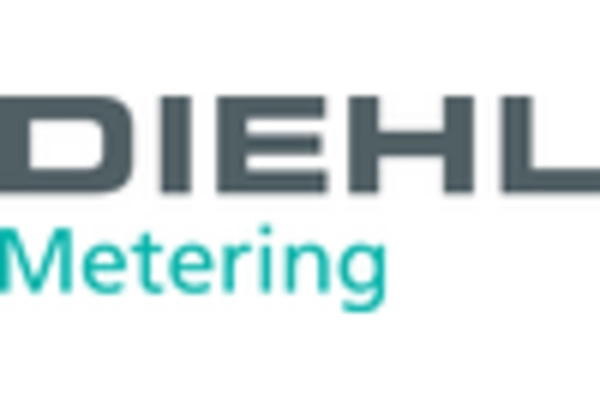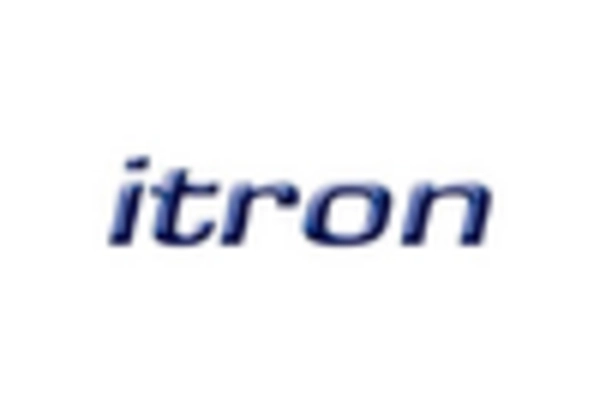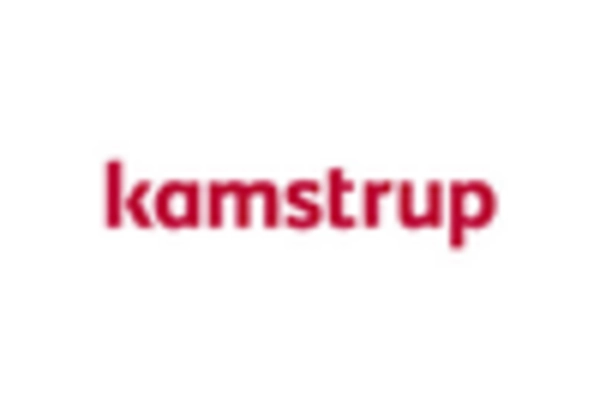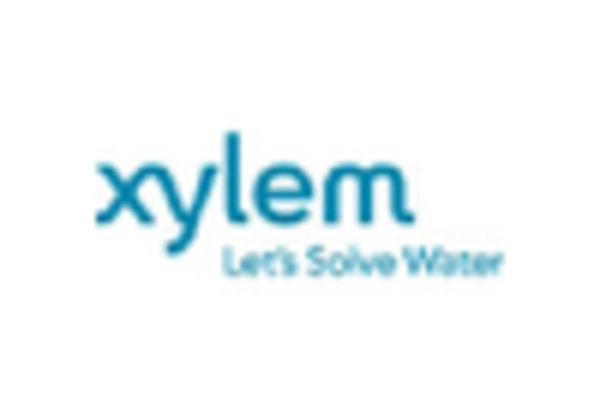Government Incentives and Funding
Government initiatives aimed at promoting water efficiency are playing a crucial role in the expansion of the Residential Smart Water Metering Market. Various regions are implementing incentive programs that encourage homeowners to install smart water meters. These programs often include rebates, tax credits, or grants, making the transition to smart metering more financially viable. For instance, some municipalities have reported a 30% increase in smart meter installations following the introduction of such incentives. This financial support not only alleviates the initial cost burden for consumers but also aligns with broader environmental goals, thereby fostering growth in the Residential Smart Water Metering Market.
Enhanced Data Analytics Capabilities
The advancement of data analytics technologies is transforming the Residential Smart Water Metering Market. Smart water meters generate vast amounts of data that can be analyzed to provide valuable insights into consumption patterns and system performance. Enhanced analytics capabilities allow utilities and consumers to make informed decisions regarding water usage, leading to improved efficiency and cost savings. The ability to predict demand and identify anomalies in water consumption is becoming increasingly important. As data analytics tools continue to evolve, they are expected to play a pivotal role in optimizing water management practices, thereby driving growth in the Residential Smart Water Metering Market.
Increased Water Conservation Efforts
The Residential Smart Water Metering Market is experiencing a surge in demand due to heightened awareness surrounding water conservation. As water scarcity becomes a pressing issue, municipalities and homeowners are increasingly adopting smart metering solutions to monitor and manage water usage effectively. These systems provide real-time data, enabling users to identify leaks and reduce wastage. According to recent estimates, the implementation of smart water meters can lead to a reduction in water consumption by up to 20%. This trend is likely to continue as more regions implement policies aimed at sustainable water management, further driving the growth of the Residential Smart Water Metering Market.
Integration with Smart Home Technologies
The convergence of smart home technologies with the Residential Smart Water Metering Market is a notable driver of growth. As households increasingly adopt smart devices, the integration of water metering systems with home automation platforms becomes more prevalent. This integration allows users to monitor water usage through mobile applications, providing insights into consumption patterns and enabling automated control of water-related appliances. The market for smart home devices is projected to grow significantly, which could enhance the adoption of smart water meters. This synergy between technologies not only improves user experience but also promotes efficient water management, thereby propelling the Residential Smart Water Metering Market forward.
Rising Urbanization and Population Growth
Urbanization and population growth are significant factors influencing the Residential Smart Water Metering Market. As urban areas expand, the demand for efficient water management systems intensifies. Increased population density leads to higher water consumption, necessitating the adoption of smart metering solutions to monitor and manage resources effectively. Projections indicate that urban populations will continue to rise, potentially reaching 68% by 2050. This trend underscores the need for innovative water management strategies, positioning smart water meters as essential tools for municipalities and homeowners alike. Consequently, the Residential Smart Water Metering Market is likely to benefit from this ongoing urbanization trend.


